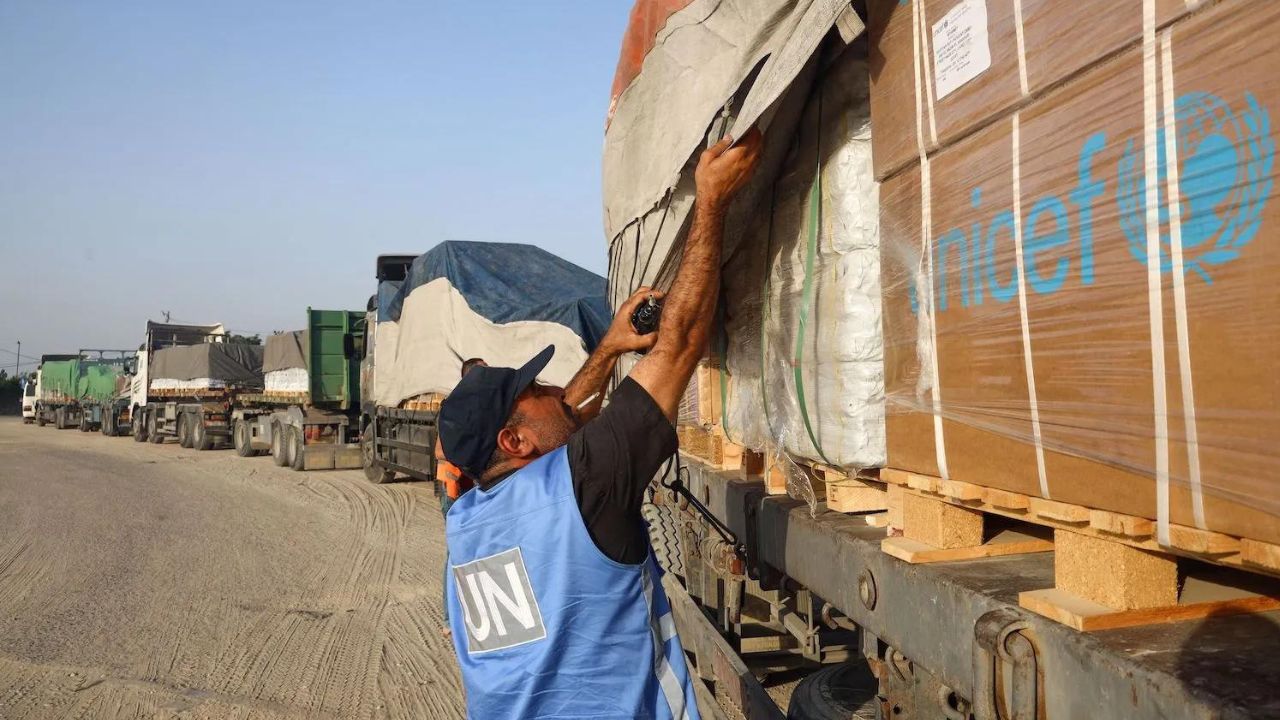The United Nations has issued a call for $46.4 billion in humanitarian aid for 2024, aiming to assist around 180 million people facing dire circumstances worldwide. The UN’s Global Humanitarian Overview for 2024 paints a bleak picture, citing conflicts, climate emergencies, and economic collapses as factors wreaking havoc on the most vulnerable populations. Despite the urgent need, the appeal amount has been scaled back from the 2023 request due to a decrease in donations.
Challenges in Global Humanitarian Outlook:
The UN’s assessment of the global humanitarian outlook emphasizes the challenging landscape characterized by conflicts, climate-related emergencies, and economic instability. Notably, regions such as the wider Middle East, Sudan, and Afghanistan are identified as hotspots requiring significant international aid efforts in addition to the ongoing focus on the conflict in the Gaza Strip.
Decrease in Donations and Funding Shortfall:
While the 2023 appeal sought $56.7 billion, it received only 35% of that amount, resulting in one of the most significant funding shortfalls in years. This decrease in donations has impacted the UN’s ability to deliver assistance and protection, reaching 128 million people. The shortfall in funding has raised concerns, especially as 2023 is expected to be the first year since 2010 in which humanitarian donations declined compared to the previous year.
Key Regions and Countries in Need:
The 2024 appeal covers 72 countries, with 26 facing crises and 46 neighboring nations dealing with the repercussions, including an influx of refugees. Notable individual country appeals include Syria ($4.4 billion), Ukraine ($3.1 billion), Afghanistan ($3 billion), Ethiopia ($2.9 billion), and Yemen ($2.8 billion). The Middle East and North Africa region top the list, requiring $13.9 billion in assistance.
Challenges in Fundraising:
UN aid chief Martin Griffiths acknowledged the difficulty of raising the substantial $46.4 billion appeal, particularly considering the financial challenges faced by donor countries dealing with their own cost-of-living crises. Emphasizing the urgency, Griffiths stated that without adequate funding, life-saving assistance cannot be provided, putting lives at risk.
Focus on Gravest Needs:
The UN aims to prioritize those in the gravest need, focusing on essential areas such as fighting hunger, protecting children, combating epidemics, and providing shelter and sanitation. The appeal seeks to address the humanitarian crisis by targeting the most vulnerable populations and addressing the complex challenges presented by conflicts, climate change, and economic downturns.
Conclusion:
The UN’s appeal for $46.4 billion underscores the critical nature of the global humanitarian crisis, with conflicts and other emergencies impacting millions of lives. The international community’s response to this call for aid will play a crucial role in determining the level of support available to those facing dire circumstances worldwide. As the UN strives to meet the challenging funding goal, the focus remains on alleviating human suffering and providing essential assistance to those in urgent need.
















